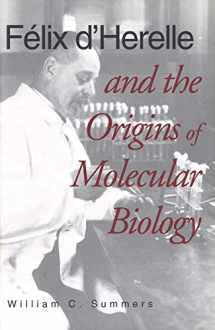
Félix d`Herelle and the Origins of Molecular Biology
Book details
Summary
Description
A self-taught scientist determined to bring science out of the laboratory and into the practical arena, French-Canadian Felix d’Herelle (1873-1949) made history in two different fields of biology. Not only was he first to demonstrate the use and application of bacteria for biological control of insect pests, he also became a seminal figure in the history of molecular biology. This engaging book is the first full biography of d’Herelle, a complex figure who emulated Louis Pasteur and influenced the course of twentieth-century biology, yet remained a controversial outsider to the scientific community.
Drawing on family papers, archival sources, interviews, and d’Herelle’s published and unpublished writings, Dr. William C. Summers tells the fascinating story of the scientist’s life and the work that took him around the globe. In 1917, d’Herelle published the first paper describing the phenomenon of the bacteriophage and its biological nature. A series of more than 110 articles and 6 major books followed, in which d’Herelle established the foundation for the later work of the Phage Group in molecular biology. Yet d’Herelle sometimes inspired animosity in others--he was drummed out of the Pasteur Institute, he held only one brief permanent position in the scientific establishment (at Yale University from 1928 to 1933), and he was bewildered by the social nuances of the world of international science. His story is more than the biography of a single brilliant scientist; it is also a fascinating chapter in the history of biology.


We would LOVE it if you could help us and other readers by reviewing the book
Book review



